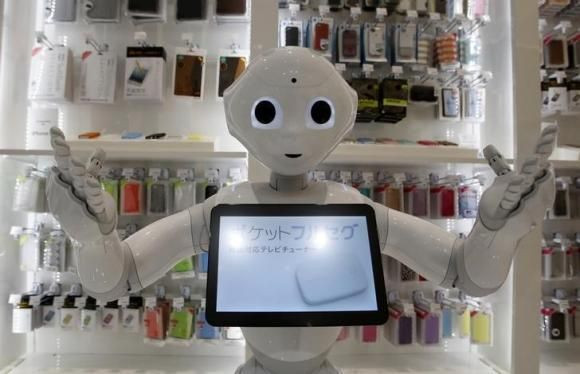Bacteria-Controlled Robots Could Soon Be A Reality

Researchers at Virginia Tech in Blacksburg, Virginia, have reported employing mathematical modeling to show that bacteria can be effectively used to control the behavior of robots and other inanimate devices.
Warren C. Ruder, co-author of a study published in the journal Scientific Reports Thursday, said the research team is planning to see whether it can build a microbiome that can live on an inanimate host and control its behavior and functioning. It would like to construct a robot that would be capable of reading and interpreting the gene expression of Escherichia coli, aka E. coli.
Phys.org reported that future robots developed by the researchers would interpret bacterial gene expression levels in E. coli through miniature fluorescent microscopes. The robots subsequently would be able to respond to the engineered bacteria.
The study showed via mathematical modeling that bacteria can control the behavior of an inanimate device such as a robot.
“The plan is to build small bioreactors where the cells can live and place them on a robot so that we can have mobile robots that harbors living colonies of bacteria that direct the robot’s behavior,” said Ruder, who is an assistant professor in the department of biological systems engineering at Virginia Tech.
Ruder explained the mechanism that the researchers used to virtually witness robots controlled by the bacteria. He said that by understanding the robust equations that describe bacterial behavior and linking them to the equations that describe simple robotic behaviors, the researchers interpreted how this system would work in real life: “When we linked those two, we saw emergent behavior in a virtual simulation -- we were able to watch how a robot driven by bacteria would move in its environment.”
© Copyright IBTimes 2024. All rights reserved.




















